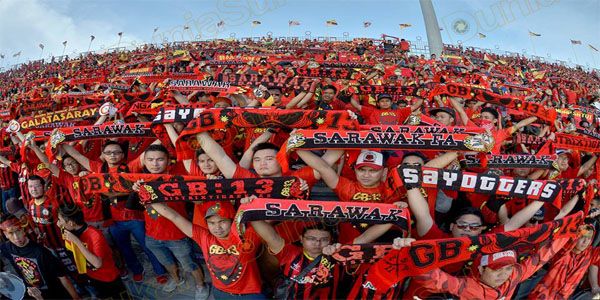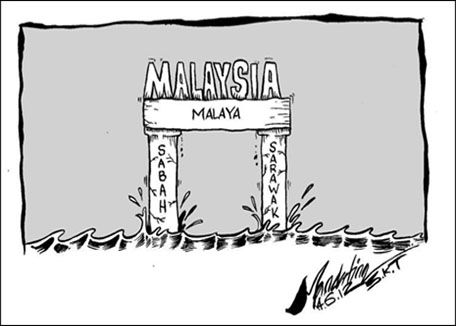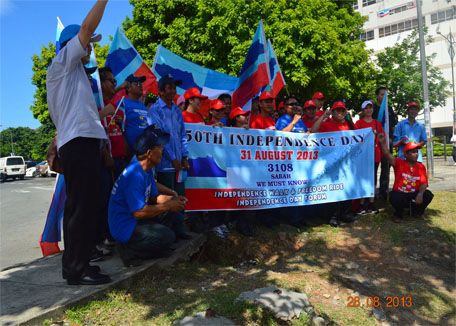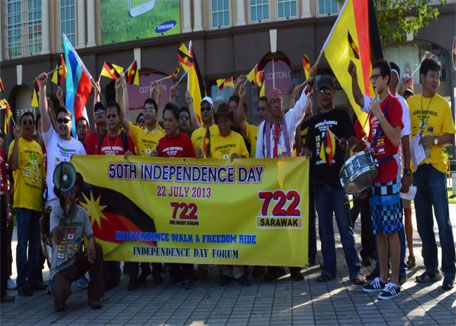 |
| UNITED WE STAND: (From left) John Ha, Bolly, Steward, Dr Su, Lawrence, Ng and Ambrose. |
Vote for STAR!
Only STAR Party can protect and bring back the Truly concept of Independence and Sovereign Country!
Sarawak for Sarawakian!
The Spirit of Sarawak for Sarawakian is getting stronger everyday!
Is this Sabah and Sarawak fate?
Sabah and Sarawak were promised to have a Self-Government. But what happen after 50 years forming The Federation of Malaysia?
Sabah 50th Independence Day
Sabah or formerly known as North Borneo was granted an Independence by British on 31 August 1963
Sarawak 50th Independence Day
Sarawak was granted Independence by British on 22 July 1963
Thursday, 14 November 2013
Issue a betrayal of Malaysia Agreements – ACS
Malaysia Agreement back in the spotlight - AMANAH
In the wake of parliament's refusal to debate the Malaysia Agreement, Amanah has invited Tengku Razaleigh Hamzah to talk about the "non-fulfillment" of the terms.
KOTA KINABALU: Parliament’s rejection of a motion by Sabah MP to debate the 18/20 points Malaysia Agreement has spurred Angkatan Amanah Merdeka (Amanah) here to organize a public talk and a round table discussion on the issue.
Tengku Razaleigh Hamzah will present a keynote address at a discussion on the 20-Points Malaysia Agreement.
Amanah deputy president Wilfred Mojilip Bumburing said the forum follows parliament’s rejection of the motion which was brought by Penampang MP Darrel Leiking.
“Razaleigh has agreed to come and repeat a speech he gave at a forum held in Kuala Lumpur recently entitled “The Non-fulfillment of the 20 and 18 Point Agreement with Sabah and Sarawak,“ the Tamparuli assemblyman told FMT Friday.
Facebook Page: STAR, Sarawak
Facebook Page: STAR N38 JEMORENG
Facebook Group: STAR N38 JEMORENG
Facebook Page: STAR P207 IGAN
By, Rajah Raqafluz
PRESS STATEMENT: “Implement Verbal Support of Sabah as Far East Hub" - DATUK DR. JEFFREY KITINGAN
Datuk Dr. Jeffrey Kitingan is the Chairman of STAR Sabah and State Assemblymen for N33, Bingkor, Sabah.
He also contested in P180, Keningau garnering 11900 strong votes
|
Facebook Page: STAR, Sarawak
Facebook Page: STAR N38 JEMORENG
Facebook Group: STAR N38 JEMORENG
Facebook Page: STAR P207 IGAN
By, Rajah Raqafluz
Imagine Musa tabling an RM40B 2014 Sabah Budget
Enough with the threats, Jeffrey tells Najib’s men
 KOTA KINABALU: Sabah opposition leader Jeffrey Kitingan wants the federal government to stop threatening those who have spoken up for Sabah’s rights in Malaysia.
KOTA KINABALU: Sabah opposition leader Jeffrey Kitingan wants the federal government to stop threatening those who have spoken up for Sabah’s rights in Malaysia.






















